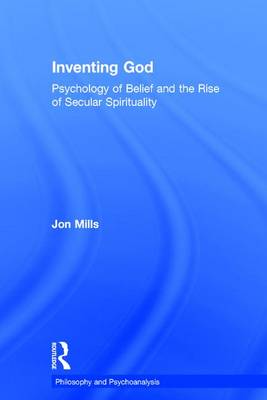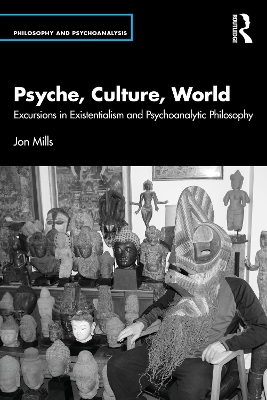Philosophy and Psychoanalysis
2 total works
In this controversial book, philosopher and psychoanalyst Jon Mills argues that God does not exist; and more provocatively, that God cannot exist as anything but an idea. Put concisely, God is a psychological creation signifying ultimate ideality. Mills argues that the idea or conception of God is the manifestation of humanity's denial and response to natural deprivation; a self-relation to an internalized idealized object, the idealization of imagined value.
After demonstrating the lack of any empirical evidence and the logical impossibility of God, Mills explains the psychological motivations underlying humanity's need to invent a supreme being. In a highly nuanced analysis of unconscious processes informing the psychology of belief and institutionalized social ideology, he concludes that belief in God is the failure to accept our impending death and mourn natural absence for the delusion of divine presence. As an alternative to theistic faith, he offers a secular spirituality that emphasizes the quality of lived experience, the primacy of feeling and value inquiry, ethical self-consciousness, aesthetic and ecological sensibility, and authentic relationality toward self, other, and world as the pursuit of a beautiful soul in search of the numinous.
Inventing God will be of interest to academics, scholars, lay audiences and students of religious studies, the humanities, philosophy, and psychoanalysis, among other disciplines. It will also appeal to psychotherapists, psychoanalysts and mental health professionals focusing on the integration of humanities and psychoanalysis.
Across the array of topics explored in this comprehensive volume, philosopher and psychoanalyst Jon Mills argues for a fundamental return to the question and meaning of existence. Drawing on the traditions of German Idealism, existentialism, and onto-phenomenology, he offers a rich tapestry of insight and critique into the foundations of psyche, human nature, and society.
As a philosophy of mind and culture, psychoanalysis offers us a promising perspective to reengage our being in the world in meaningful ways that illuminate human existence, the mysteriousness of unconscious processes, our relation to transcendence, ethical obligations towards social collectives, and the wonder of logos for our present-day consciousness. After examining the unconscious origins of psychic reality and the contradictory nature of our internal lives, Mills examines the scope of existentialism from antiquity to postmodernism, the question of authenticity, paranoiac epistemology, the essence of evil, dysrecognition and social pathology, belief in God, myth, the ideologies of science, hermeneutics, truth, freedom and determinism, and the fate of civilization in relation to the pervasive forces that threaten our existence.
Psyche, Culture, World will be of interest to philosophers, psychoanalysts, psychologists, academics, and students in the arts and humanities, cultural studies, anthropology, myth, psychology of religion, and psychotherapy.

